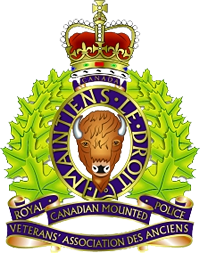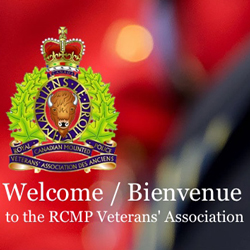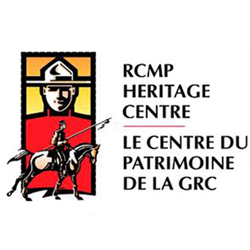RCMP’s Suicide Prevention Programs’ Unwittingly Deficient
RCMP Veterans’ Association
Members Helping Members
This information is being provided to all Association Members
RCMP’s suicide prevention programs ‘unwittingly deficient,’ says internal report on Mountie’s death
Dear Association Members,
The CBC has authored a story based on the findings of an internal Force team – the Hazardous Occurrence Investigation Team – that identifies gaps in the Force’s handling of mental illness. The story is reproduced hereunder but some of the findings are, in my opinion, cause for great concern and should be mentioned to emphasize the gravity of the situation.
- “One of its main recommendations is for fresh research — for the RCMP to find out how many active and retired members have killed themselves or have attempted to, and why.
- “The non-existence of a national study on the specific trends relating to member and employee related suicides may have left RCMP programs and courses unwittingly deficient in content specific to these trends and issues,” says the 39-page report.
- “This lack of educational awareness impacted the RCMP’s ability to intervene in [Const.] Nolin’s situation
- The report’s investigators said that while they were compiling their findings, there were four suicide attempts by RCMP members in the Ottawa area alone.
- According to the RCMP’s latest figures, there have been 25 documented suicides among RCMP members — 15 active members and 10 retirees — between Jan. 1, 2014 and Dec. 13, 2019.
- At least six officers and two civilian members were either close to the scene when Nolin died or saw his body afterward. But the report says the RCMP didn’t even know who was involved in the critical incident.”
There are a number of related CBC reports identifying gaps in the Force’s mental health program and the disgruntlement amongst serving members. These will be distributed to you shortly. Please note that suicide is occurring amongst retired members almost as frequently as serving members. This is an issue that cannot be allowed to be forgotten.
James Forrest
Director of Communications
RCMP Veterans’ Association
Politics
RCMP’s suicide prevention programs ‘unwittingly deficient,’ says internal report on Mountie’s death
Report notes a ‘lack of educational awareness’ which ‘impacted the RCMP’s ability to intervene’ Catharine Tunney · CBC News · Posted: Jan 05, 2020 4:00 AM ET | Last Updated: January 5

RCMP Const. Jean-Pascal Nolin — a father of two who had served nearly 12 years with the force — was last seen alive at a downtown Ottawa RCMP office on March 17, 2016.
He was pronounced dead of a self-inflicted gunshot wound just a few hours later. Nolin’s suicide came more than a year after he took part in the police response to the fatal Parliament Hill shootings in 2014. His death left his co-workers shaken.
Now, a recently released internal report on his death, its aftermath and the underlying factors says the RCMP lacks awareness about Mountie suicides — and its ability to prevent suicides in the ranks likely falls short as a result.
“Sadly, the force must sometimes learn and grow in the wake of a tragedy,” says the report, obtained through an access to information request.
“The fact that the employer has not developed a strategy to closely monitor and adequately detect any decompensation in its employees’ mental health contributed to putting [Const.] Nolin at risk.”
The report’s authors, members of the RCMP’s hazardous occurrence investigation team, say they’ll never truly know why Nolin killed himself — and make a point of stating that his supervisors didn’t miss any overt warning signs in Nolin’s case.
However, their report points to gaps in the way the RCMP handles mental health and suggests several improvements.
One of its main recommendations is for fresh research — for the RCMP to find out how many active and retired members have killed themselves or have attempted to, and why.
“The non-existence of a national study on the specific trends relating to member and employee related suicides may have left RCMP programs and courses unwittingly deficient in content specific to these trends and issues,” says the 39-page report.
“This lack of educational awareness impacted the RCMP’s ability to intervene in [Const.] Nolin’s situation.”
Tracking the symptoms of post-traumatic stress
The report’s investigators said that while they were compiling their findings, there were four suicide attempts by RCMP members in the Ottawa area alone.
According to the RCMP’s latest figures, there have been 25 documented suicides among RCMP members — 15 active members and 10 retirees — between Jan. 1, 2014 and Dec. 13, 2019.

The report says a national study should look into the work and life factors that put members’ mental health at risk, and should find out whether members “are succumbing to mental illness for endemic reasons within the control of or further influence by the employer.”
The report also calls for a strategy to better detect symptoms of post-traumatic stress disorder and to improve training to teach Mounties to recognize warning signs in themselves and their colleagues.
It also recommends increased aftercare support for staff when someone in a detachment dies.
At least six officers and two civilian members were either close to the scene when Nolin died or saw his body afterward. But the report says the RCMP didn’t even know who was involved in the critical incident.
Many of those affected by Nolin’s suicide who were interviewed for the report said they were left “disappointed” and “wanting more” from their employer.
“There is a significant gap between what is considered a debriefing by the critical incident stress management guide and what is expected by the affected members,” says the report.
RCMP is in the market for psychologists
Brian Sauvé is the president of the RCMP’s new union, the National Police Federation. He said the force has made some progress since 2016 in decreasing the stigma surrounding the issue of mental health within the RCMP, but it still has a long way to go.
“We are a massive organization and those things are going to take time. We cannot take our foot off the gas. In fact, I would suggest we have to step harder on the gas pedal to improve knowledge, to approve availability of services, to expedite care to those who have been exposed,” he said.
A spokesperson for the RCMP said the force would not comment on specific cases, out of respect for the privacy of its former employees and their families.
In an email, Cpl. Caroline Duval said the RCMP hopes to hire 14 new psychologists over the next year to help with the prevention and early detection of mental health issues.
“The health, safety and resiliency of our members is a top priority for the RCMP and is essential to public safety,” said Duval.
“We are educating employees at all levels that psychological health problems are not anyone’s choice, and that recovery and management are possible with appropriate treatment and support.”
The force also has teamed up with the University of Regina to study PTSD among Mountie cadets.
Sauvé said he’d still like to see a national study of RCMP suicides.
“The first step really is acknowledging that there’s an issue,” he said.
“I think we realize that one death is too many, whether they’re serving members or they’re retired members. And in order to actually determine the magnitude of that, we need to start studying and tracking the data for the RCMP.”
Sauvé, who serves as a sergeant in the RCMP, said that the force also needs to reckon with a resources problem.
‘One drop of water in the bucket can make it overflow’
“We can train and teach our membership to be resilient to what they experience in the field. The challenges are that if you’re so under-resourced as we are — where days off are not a possibility, taking your holidays to rest and recharge with your family is not a possibility because of the continuous overtime and the need to backfill positions that are not filled — all of a sudden no matter how well you train someone to be resilient, if there’s no work-life balance that resilience starts to erode,” he said.
“Over time you just end up in a scenario where … for lack of a better term, you’re burned-out and one drop of water in the bucket can make it overflow.”
Last fall, after a British Columbia staff sergeant went public about the lack of support resources, RCMP Commissioner Brenda Lucki said the force has “more work to do” to improve its officers’ mental health.
“We continually work to improve our efforts to maintain a psychologically healthy and safe workplace through increased accountability for well-being, aligned services and programs, increased engagement and increased knowledge of employee needs and well-being,” Lucki said at the time.
“But we know we have more work to do.”
|
|
|
|


 January 6, 2020
January 6, 2020 







